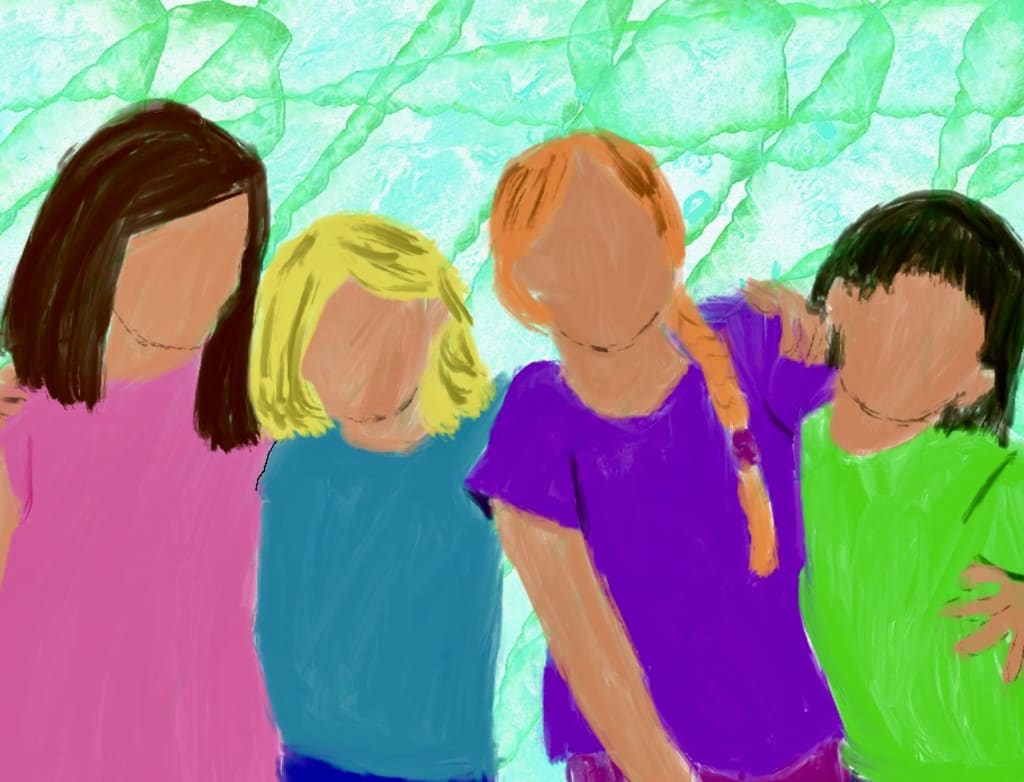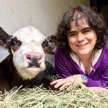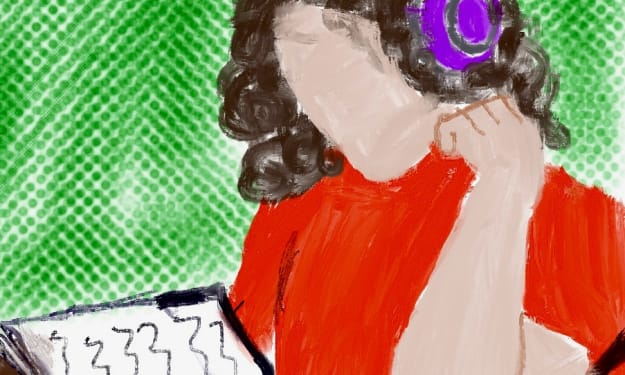I Knew I Belonged With the Special Ed Kids
My Autistic Confession 4

My name is Angel and this is my autistic confession. As a child, long before anyone else realized I had special needs, I found a place to belong among children from the special education class at my school.
During the current school year, I’ve been working as a paraprofessional in an elementary school special education class. Part of my job is to go out to recess with the children. They are all in third, fourth or fifth grade, and they go to recess with the fourth and fifth graders from the general education classrooms.
Most of the kids from my class tend to play together. They love to play make-believe games about superheroes, cops and robbers, video game characters, etc. Sometimes some of the gen ed kids join them in play, but they tend to have their own groups of friends from their own classes.
Late last fall, I started noticing that one little girl seemed to always be around. She never said anything, but just tended to flutter around them, sometimes acting as if she were playing with them, but never quite connecting with them.
My kids aren’t the best at picking up on subtle social cues, so they never particularly noticed this little girl. But one day she asked me, “Can I play with them?”
“Sure!” I replied. I corralled some of the kids closest to me and pointed out the little girl, saying, “She can play with you, right?”
They happily agreed. My kids might not notice less obvious clues that someone wants to be their friend. But when asked outright, “Can this kid play with you?” they are always happy to welcome a new friendship.
From then on, the little girl was always with my kids at recess, playing whatever they were playing. Her name, it turned out, was Madeline, and she was a fourth grader. She was quiet but friendly, and followed along with whatever games the kids were playing that day. I noticed that she walked on her toes most of the time. She reminded me of a fairy, flitting and hopping around.
One of the recess supervisors told me that she had been worried about Madeline. She guessed that the lonely little girl was on the autism spectrum somewhere. During the previous school year, and even the beginning of this year, Madeline had always been alone at recess. The recess supervisors had tried to facilitate some friendships for her, but the other gen ed kids were not interested in playing with her. They didn’t bully her, but mostly ignored her or left her out. Fourth and fifth grade girls tend to walk around the playground talking, rather than playing games, so it was easy for quiet little Madeline to get left behind.
The recess supervisors had even gone to the classroom teachers and the principal for help. Was there any sort of social group or club Madeline could join to help her make friends? There was nothing available. Pre-COVID, such groups had existed, but they’d been shut down to minimize contact among children.
So every recess, Madeline was alone. Until she stumbled upon the children from my class.
Hearing the story, my memory slipped back to when I was Madeline’s age.
I was a quiet, quirky kid myself, with zero interest in boys or fashion or any of the other things my peers were fascinated by. I loved to read, and I still loved playing make-believe games and playing on the playground. At home, I usually played with neighborhood children who were a few years younger than me and shared my interests. But at school, I was usually alone.
Unlike Madeline, I was not spared from bullying. This was the nineties, and parents and teachers still believed that children who were bullied were somehow at fault. I had been coached by my parents and teachers to just try harder, focus more on my hair and clothes, and pay more attention to what the popular girls were doing. What they were doing was usually making fun of me until I was nearly in tears. But I was told if I just tried harder, they would somehow become my friends.
There was a special education class in my school. Back then it was common for all of the grades to be out at recess together, so my recess was at the same time as theirs even though they were a few grades younger than me. I had eyed them curiously before, but I’d never had any opportunities to interact with them. Honestly, I was a little afraid of them.
A few years earlier, another child in my class had pointed out the special education children to me, saying, “Those kids are retarded!”
I’d gone home and reported to my mother, “There are retarded kids at my school!”
My mother had told me that “retarded” was not a nice word, and I should never say it again.
The next time my classmate at school mentioned the “retarded” kids, I’d replied, “That’s not a nice word.”
“No, they really are retarded,” retortes my classmate. She explained to me that the kids were around our age but that their brains didn’t work “right,” either because they’d been born this way or maybe because they’d been in an accident.
I had a lot of anxiety even as a child. Everything new made me uneasy. It had never occurred to me that children could be born with brains that didn’t work… or even worse, that an accident could cause them to lose the “normal” brain they once had.
(This was many years before I myself was diagnosed with autism and ADHD. The irony is not lost on me.)
At any rate, although I knew the special education class existed, I had never spoken to any of the children in it. Until one day, a little girl ran up to me and hugged me. “I’ve been looking for you!” she exclaimed.
I hugged her back, albeit shyly, and then hugged two of her friends who had followed her.
I played with those three girls at every recess fir the rest of the school year. Their names were Abby, Liz, and Jenny, and they became my only friends at school. They were a little younger than me, so I saw myself more as a big sister to them than a peer, but I looked forward to seeing them every day.
This gave the other kids in my class one more reason to make fun of me, but I didn’t care. I always stuck up for them. It was easier than sticking up for myself. “They’re my friends. They’re nice,” I’d say. I’d never tolerate anyone speaking meanly of them.
When I told my parents about my new friends, they were not supportive. They discouraged me from playing with the girls. I did it anyway.
One day I wrote my phone number down for them and said they could call me after school or on the weekends. My brother always had friends calling on the phone, and I wanted to Be able to talk to my friends on the phone as well. One day Jenny called when I wasn’t home. When I got home, my mom reprimanded me for giving the girls my phone number. “Don’t call her back. You’ll start something you don’t want to start,” she said.
I didn’t know what she meant. But I was a kid, and in those days kids didn’t have their own phones, so I had to obey.
I continued to play with the girls from the special ed class, throughout the fourth, fifth, and sixth grades. I learned not to talk about them to my parents. Unfortunately, my brother sometimes told on me. He was a popular kid and bragged about how he and his friends made fun of kids from the special ed class. Those children were never mean to anyone. Their behavior was more typical of much younger children, but they were never mean. They just wanted to have friends, to play, like everyone else. My brother and his friends bullied them. This was tolerable to my parents. Being friends with them wasn’t.
“What is so bad about being friends with them?” I asked my parents.
“People will think you’re like them,” said my mom.
“When you hang around with them, you might become like them,” said my dad.
The thing is… I was like them. In multiple ways. On one level. As a child with undiagnosed special needs, I understood what it felt like to be bullied, to be left out, to not fit in anywhere. The only real difference in that aspect was that I was more painfully aware of it, being the only kid in my grade who had no friends and didn’t fit in. They were all together in the special education classroom, and they seemed much more confident in themselves than I was. They had somewhere to belong.
On another level, playing with Liz, Abby and Jenny had made me realize that they really were just regular kids. They acted younger than most kids their ages, but so did I. They had trouble understanding some things, but they loved to play, just like me. They only wanted to be with their friends and have fun, just like everyone else.
Once I reached the end of sixth grade, I had to say goodbye to my friends. I would be moving on to junior high. Because of our age difference, I would be in high school by the time they reached junior high, so we wouldn’t be in school together again. And I wasn’t allowed to invite them to my house over the summer or anything like that. So it was goodbye forever, literally. Although we lived in the same town, I never saw them again.
I’m not sure if Madeline was ever told by anyone that she shouldn’t play with the kids from my class. I’m not sure if she saw the parallels between their special needs and her own, or if she was even aware of her own autism. All I know is that the children in my class loved her. She may not have been popular in her own class, but among our kids, she was a star.
I say this in the past tense because a few weeks ago Madeline moved away. On her last day, she went around the playground saying goodbye to everyone. Most of the kids dismissed her with a bored wave or a few kind words at most.
When she said goodbye to my kids, they hugged her tightly and cried. They promised not to forget her. They spent their choice time making cards for her, which I delivered to her in her classroom just before the busses arrived. They wrote things like. “I love you,” and “best friends.” Even though it’s been weeks, they still talk about her and ask me if she’s coming back.
There are two “morals” to this story. The first is that it’s interesting how children can find their own “people.” I was a decade away from being diagnosed with special needs when I met my friends, but I found a group of kids that I had more in common with than I realized. Madeline found my class, despite being officially a “gen ed” kid.
The other moral is that, if you restrict yourself from being friends with a certain person or group of people because you’re afraid of what others might think of you, you may very well be denying yourself one of the best friendships you could have had.
About the Creator
Angel Mann
I am an alien. I’ve been diagnosed with autism and ADHD, which explain some but not all aspects of my life. Maybe I really am from a different planet. Until that planet is discovered, I have to learn to survive here on Earth.






Comments
There are no comments for this story
Be the first to respond and start the conversation.